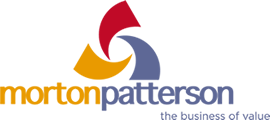All roads lead back to how much we truly value ourselves. Our sense of self-value and self-esteem is an essential foundation from our childhood which impact every aspect of our lives.
When we have a high level of self-worth, we’re more likely to have clear boundaries of what is acceptable or not. Have a growth mindset, accept failure as part of the process, take risks, be happy for others’ success, and be more likely to form healthy relationships.
This is applicable in business, personal life and career.
THE ADVANTAGES OF KNOWING YOUR VALUE
✳️ You believe in yourself and have strong self-esteem and self-worth.
✳️ You can define and clearly communicate your value to a current or prospective client.
✳️ You will comfortably have the budget conversation, not prevaricating, offering discounts or undercharging because you are afraid to lose the business.
✳️ Putting yourself first is okay and does not mean you’re selfish.
✳️ You will push back on a client, assert your expertise, and not defer to them.
✳️ You are clear about your boundaries, and so is your client.
✳️ You can demonstrate a return on investment should prospective clients choose to work with you.
✳️ Your strong self-esteem means you see clients as peers and not someone you feel in awe of Because of a brand name
or status.
✳️ You can confidently ask for the business.
✳️ You are comfortable talking about money, chasing up late payments or general fees.
✳️ Charge fees based on the value of your results and not what you think clients can afford
✳️ You look for a win: win in all negotiations.
THE DISADVANTAGES
✳️ Always seek permission and approval to validate what to do and your progress.
✳️ Struggle with saying no and not feeling guilty
✳️ Yes to requests before giving them due consideration.
✳️Chasing business with clients you know are not suitable for you, which ends up costing you more, but you want to keep the revenue coming in.
✳️ Likely to have low confidence and awareness of the value of the service you provide.
✳️ You will not speak up assertively, allow scope creep in projects, and have fickle boundaries.
✳️ Accept being paid by the hour when you know that packaged solutions offer the client a good return on investment
and you’re paid handsomely.
✳️ Much More likely to focus on process and not outputs.
✳️ Undercharge, as you cannot communicate the impact of your intervention.
✳️ Struggle with asking for what you want clearly.
✳️ More likely to go off on a – wild goose chase when a prospective client says, ‘Send me a proposal,’ and you need to
learn about objectives, risks, measurements, or the value of the intervention before proceeding.
✳️ More likely to provide one fee in your proposals and not options demonstrating increasing value in the results and fees
